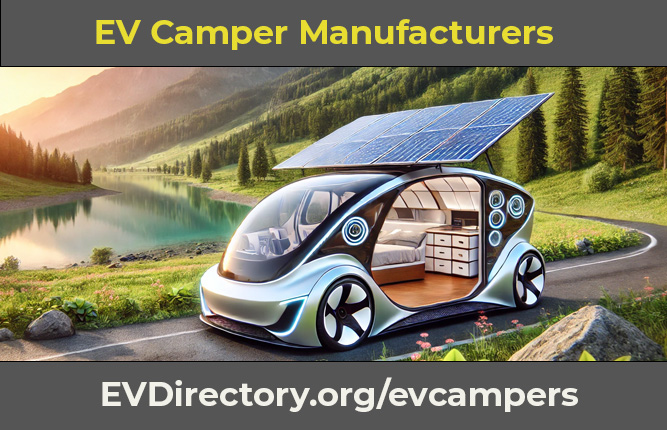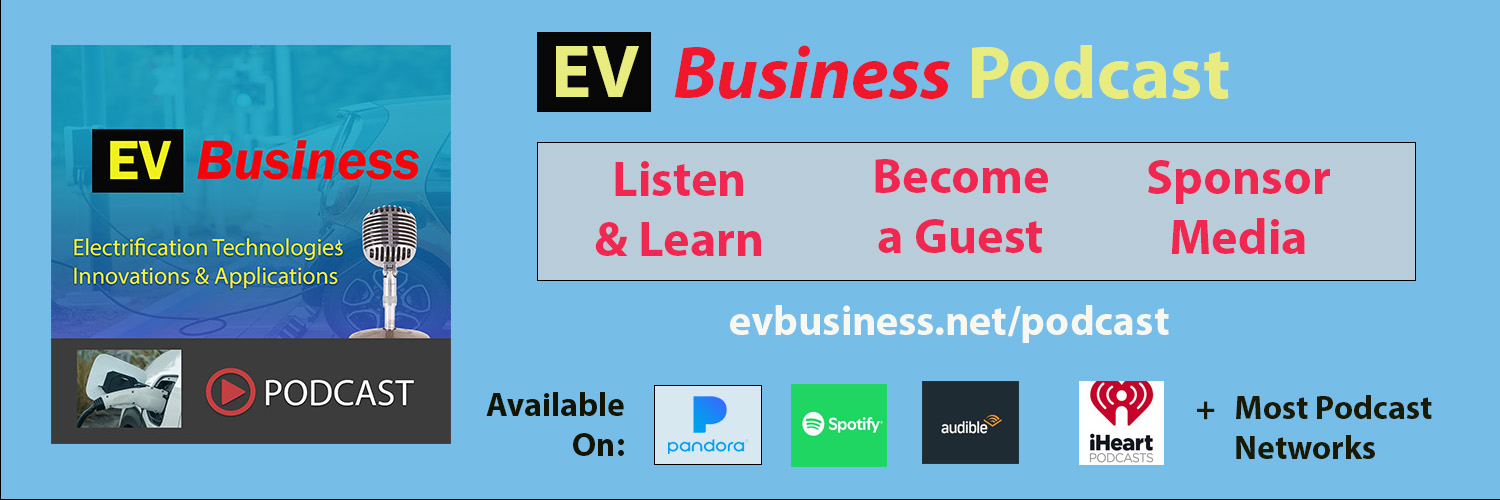EV camper manufacturers design and produce electric-powered mobile living vehicles that combine sustainable technology with the comfort and functionality of traditional campers. Electric vehicle (EV) campers address the need for sustainable, off-grid mobility while combining comfort and functionality. These innovative vehicles solve key challenges such as range anxiety, energy efficiency, and adaptability for diverse environments. With features like sleek, modern designs, advanced climate control, and renewable energy integration, EV campers offer a blend of style, comfort, and eco-consciousness. They include customizable layouts, robust energy management systems, and connectivity options to ensure users can stay productive and entertained while on the road. Exploring EV camper manufacturers offers the chance to embrace sustainable travel without sacrificing convenience or performance.
Electric Vehicle – EV Camper Manufacturers

EV Camper Manufacturer List
A1 Attack – A1Attack.com specializes in innovative solutions for electric vehicle campers, offering cutting-edge designs and sustainable technologies for eco-friendly mobile living.
AC Future – Unveiled the AI-THd, a luxurious, expanding electric motorhome that more than doubles in size to 400 square feet when the walls expand.
Dethleffs GmbH & Co. KG – A German manufacturer that unveiled the e.home, an electric motorhome concept covered in solar panels, aiming for energy self-sufficiency on the road.
Fiat Professional – E-Ducato is an all-electric van that serves as a base for camper conversions, promoting eco-friendly recreational vehicles.
Grounded RVs – Grounded RVs specializes in fully electric camper vans for sustainable adventures, offering customizable interiors and off-grid capabilities.
Higer Bus Company Limited – Higer manufactures the H6V, an electric van model that can be configured for camper use, contributing to eco-friendly recreational vehicles.
Hyundai Motor Company – Developed the Inster, an electric SUV that can be converted into a camper with a double bed by folding all the seats, including the driver’s seat.
LEVC (London Electric Vehicle Company) – LEVC produces the e-Camper, a camper van variant of their VN5 electric vehicle, offering sustainable travel options.
Lightship RV – Lightship RV is developing aerodynamic, all-electric travel trailers designed to reduce energy consumption and provide a sustainable camping experience.
Maxwell Vehicles – Maxwell Vehicles designs 100% electric camper vans, integrating high-voltage batteries and solar power for a seamless camping experience.
Mercedes-Benz AG – Mercedes-Benz offers the eSprinter, an all-electric van that serves as a versatile base for camper conversions, promoting sustainable travel solutions.
Nissan Motor Co., Ltd. – Offers the e-NV200, a fully electric van that has been converted into campervans, providing an eco-friendly option for travelers.
OzXcorp – An Australian company leading the industry shift towards electrification by developing electric caravans capable of charging cars and powering homes.
Pebble – Introducing the Pebble Flow, an electric RV travel trailer designed to enhance the glamping experience with eco-friendly features.
Potential Motors – A Canadian company developing the Adventure 1, a fully electric off-road RV designed for rugged terrains.
Renault – Renault has introduced the Hippie Caviar Motel, an electric camper van concept based on the Kangoo E-Tech Electric, focusing on eco-friendly travel.
Sharp Corporation – Introduced the Sharp LDK+, an all-electric minivan concept designed to be a luxurious, mobile living room with advanced AI-driven technology.
THOR Industries, Inc. – THOR Industries, the world’s largest RV manufacturer, is developing the Thor Vision Vehicle, an electric camper van concept emphasizing innovative design and technology.
Toyota Motor Corporation – Proace Electric is a van available in electric versions, which can be converted into campervans, offering a sustainable travel solution.
Volkswagen Commercial Vehicles – Volkswagen is set to release the ID. Buzz, an all-electric van with planned camper configurations, blending modern electric technology with classic design.
Winnebago Industries – Winnebago Industries is a leading manufacturer of outdoor lifestyle products, including the all-electric eRV2 camper van prototype.
EV Camper Manufacturer Key Features and Capabilities
Aesthetic Design
Modern, sleek, and visually appealing designs create a welcoming environment and elevate the overall experience of using the camper. A visually attractive camper can enhance user satisfaction and even increase resale value.
Cargo Capacity
Space for carrying outdoor gear, bicycles, or other large recreational items ensures that users can bring along everything they need for their adventures. This is particularly important for those engaging in sports or outdoor activities.
Charging Infrastructure
Compatibility with various chargers, including fast and renewable energy options, ensures the camper can be recharged conveniently across diverse locations. This is essential for reducing range anxiety and enabling longer trips.
Cleaning and Maintenance
Easy-to-clean surfaces and integrated waste management systems simplify upkeep and ensure a hygienic living environment. Low-maintenance designs save time and effort, especially on extended journeys.
Climate Control
Advanced heating and cooling systems maintain interior comfort regardless of weather conditions. This is crucial for ensuring a pleasant experience in extreme climates.
Connectivity
Reliable internet and mobile connectivity allow users to access digital services, stream media, or stay in touch while on the road. Stable connectivity is vital for remote workers or those needing constant communication.
Customization
The ability to modify the design of the camper, including appliances, furniture, and accessories, allows users to tailor the camper to their preferences. Customization ensures the camper meets the unique needs of each buyer.
Driving Range
Energy efficiency and long battery life support extended travel without frequent recharging. A greater range provides more freedom and convenience for exploring remote or rural locations.
Energy Management
Efficient systems for powering appliances, charging devices, and maintaining a water supply ensure the camper can function smoothly off-grid. Reliable energy management maximizes convenience and independence.
Entertainment Features
Dedicated spaces for dining, lounging, or engaging in recreational activities add comfort and enjoyment to the camper experience. These features are important for enhancing downtime and relaxation.
Environmental Capabilities
Weather-resistant designs ensure the camper can handle extreme temperatures or adverse conditions. This durability is essential for all-season and all-terrain travel.
Living Comfort
Amenities like comfortable sleeping arrangements, ergonomic seating, and climate control provide relaxation and recovery spaces. Comfort is key for ensuring users feel at home while on the road.
Maintenance Costs
Durable components and affordable servicing options reduce long-term costs of ownership. Lower maintenance expenses make the camper more economical over its lifespan.
Mobility
Compact and agile designs allow the camper to navigate urban areas or tight spaces with ease. Mobility is important for accessing a wide variety of locations and parking spots.
Modular Expansion
Optional add-ons, such as extra sleeping areas or outdoor setups, provide increased functionality and adaptability. Modular options ensure the camper can grow with the user’s needs.
Noise Reduction
Insulated designs and quiet operations create a peaceful living environment. This feature is particularly important for sleeping and relaxation in busy or noisy locations.
Off-Grid Capability
Features that support extended stays in remote areas without external power or water, such as renewable energy systems, provide true independence. This capability is vital for adventurers seeking solitude.
Recyclable Materials
The use of recyclable and sustainable materials reduces environmental impact and supports eco-conscious living. Sustainable materials align with broader environmental goals.
Renewable Energy Integration
Solar panels and other renewable systems supplement power needs in remote areas, reducing dependency on traditional charging stations. This feature enhances sustainability and cost savings.
Safety Features
Advanced safety technologies, such as driver assistance systems and secure locks, provide protection for both users and the vehicle. Safety is a top priority for peace of mind during travels.
Smart Controls
Integrated apps and systems allow users to monitor and manage camper functions remotely, such as energy usage or climate control. Smart technology adds convenience and control.
Storage Space
Adequate storage for living supplies, personal items, and recreational equipment ensures everything can be carried safely and efficiently. This feature is crucial for organized and comfortable living.
Sustainability Focus
Eco-friendly materials and processes reduce the environmental footprint of the camper. This aligns with growing consumer demand for sustainable products.
Warranty and Support
Comprehensive warranties and accessible customer service ensure reliability and peace of mind. Strong support networks make the ownership experience smoother and less stressful.
Water Management
Integrated systems for water storage, filtration, and efficient usage provide the essentials for living in remote areas. Proper water management is critical for hygiene and convenience.
Weight Distribution
Balanced designs ensure stability and safety while driving, especially when the camper is fully loaded. Proper weight distribution enhances driving performance and reduces wear on the vehicle.
EV Camper Glossary
- Aerodynamic Efficiency – The ability of a vehicle to reduce air resistance, improving energy efficiency and range.
- All-Electric Range (AER) – The maximum distance an EV can travel solely on battery power without requiring recharging.
- Autonomous Driving (AD) – The capability of a vehicle to operate without human intervention, using sensors and AI.
- Battery Electric Vehicle (BEV) – A type of electric vehicle that operates solely on battery power without a combustion engine.
- Battery Management System (BMS) – A system that monitors and manages the performance of a battery pack, ensuring safety, efficiency, and longevity.
- Bi-Directional Charging – A feature allowing energy flow both to and from an EV, enabling functionalities like V2G, V2H, and V2L.
- Carbon Footprint – The total greenhouse gas emissions caused directly or indirectly by a product, service, or activity, often measured in tons of CO₂ equivalent.
- Charging Infrastructure – The network of charging stations and equipment available to support EVs.
- Direct Current Fast Charging (DCFC) – A high-powered charging method that quickly replenishes an EV’s battery, suitable for long-distance travel.
- Electric Drive Unit (EDU) – The system comprising the electric motor, inverter, and transmission that propels an EV.
- Electric Vehicle Supply Equipment (EVSE) – Hardware used to deliver electrical energy from a source to charge an EV’s battery.
- Energy Storage System (ESS) – A system designed to store energy for later use, commonly used in EV campers to power appliances and systems.
- Gross Vehicle Weight Rating (GVWR) – The maximum operating weight of a vehicle, including cargo, passengers, and fuel or battery.
- High-Voltage Battery (HVB) – The primary energy storage unit in an EV, supplying power to the electric drivetrain.
- Inverter – A device that converts DC (direct current) electricity from batteries into AC (alternating current) electricity for powering standard appliances.
- Kilowatt-Hour (kWh) – A unit of energy measurement representing the amount of power used over an hour, typically indicating battery capacity.
- Level 2 Charging (L2 Charging) – A faster home or public charging option for EVs using a 240V outlet, providing quicker recharging than standard household outlets.
- Lithium-Ion Battery – A type of rechargeable battery commonly used in EVs due to its high energy density and efficiency.
- Over-the-Air Updates (OTA Updates) – Remote updates to a vehicle’s software, providing new features or fixes without needing a physical service visit.
- Plug-In Hybrid Electric Vehicle (PHEV) – A vehicle combining a battery-powered electric motor with a traditional internal combustion engine.
- Powertrain – The system of components in a vehicle that generate power and deliver it to the road surface, including the motor, battery, and drivetrain.
- Regenerative Braking – A system that recovers energy lost during braking and stores it in the battery for later use.
- Renewable Energy Integration – The incorporation of renewable energy sources, such as solar panels, into EV camper systems for sustainable power.
- Thermal Management System (TMS) – A system that regulates the temperature of an EV’s battery and components to optimize performance and longevity.
- Vehicle-to-Grid (V2G) – A system allowing EVs to return electricity to the power grid, enhancing grid stability and efficiency.
- Vehicle-to-Home (V2H) – A system enabling EVs to power a home during outages or as a backup energy source.
- Vehicle-to-Load (V2L) – A feature that allows an EV to supply power directly to appliances or tools through external ports.

